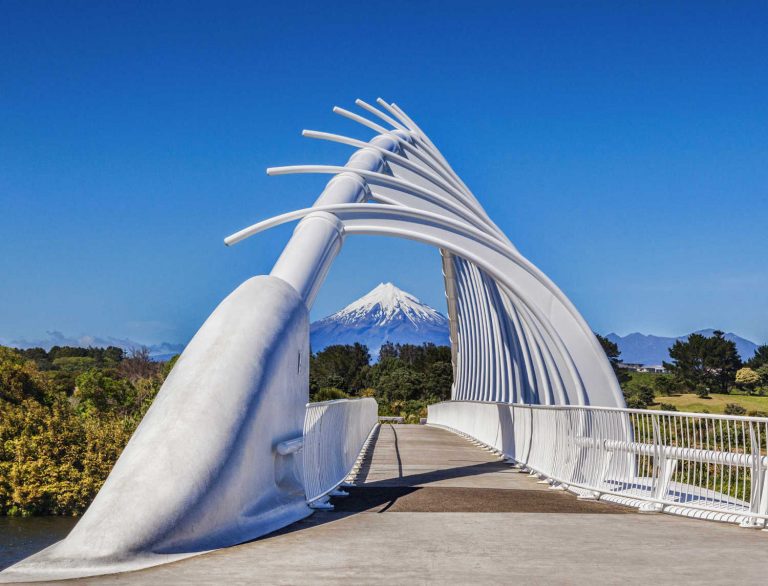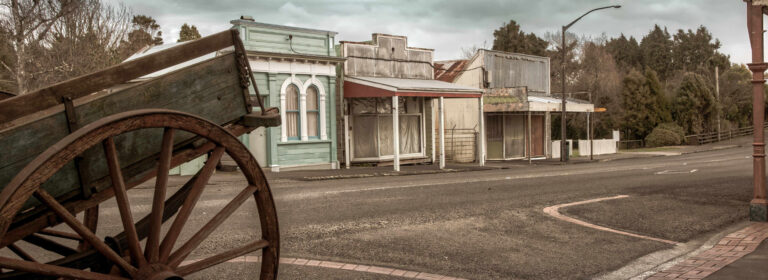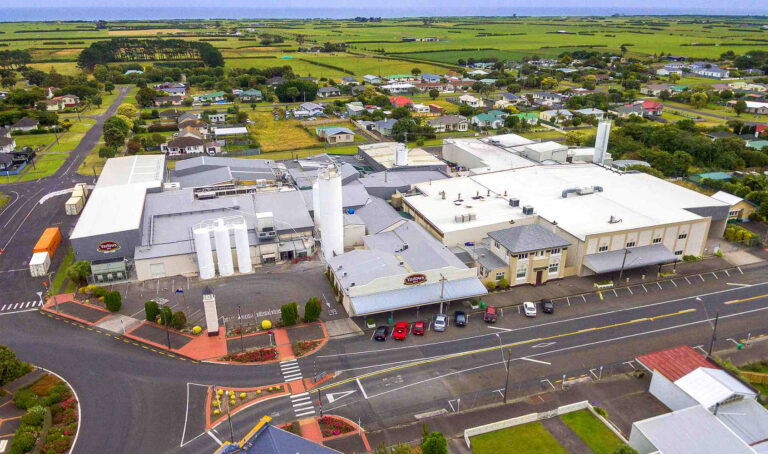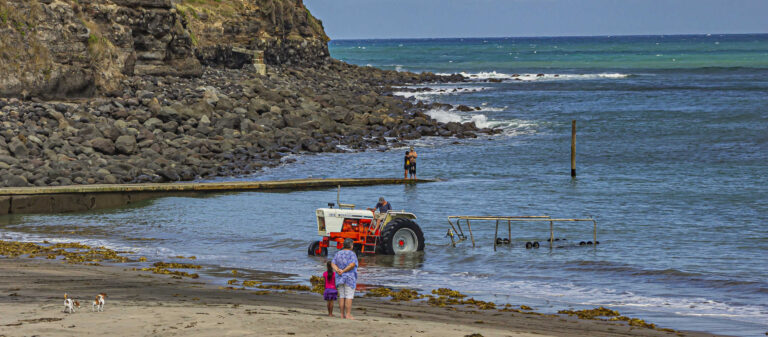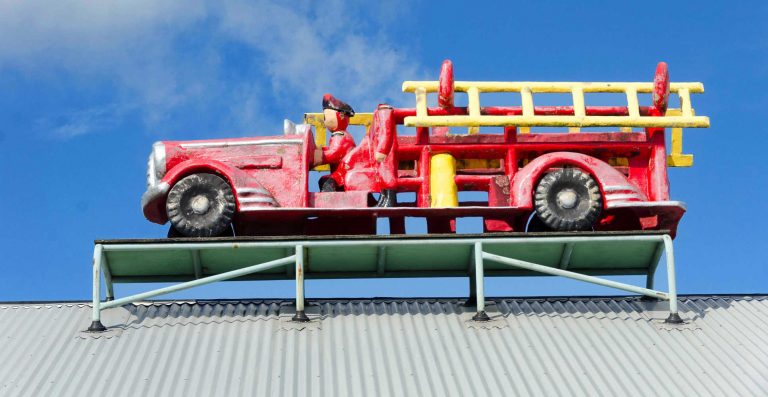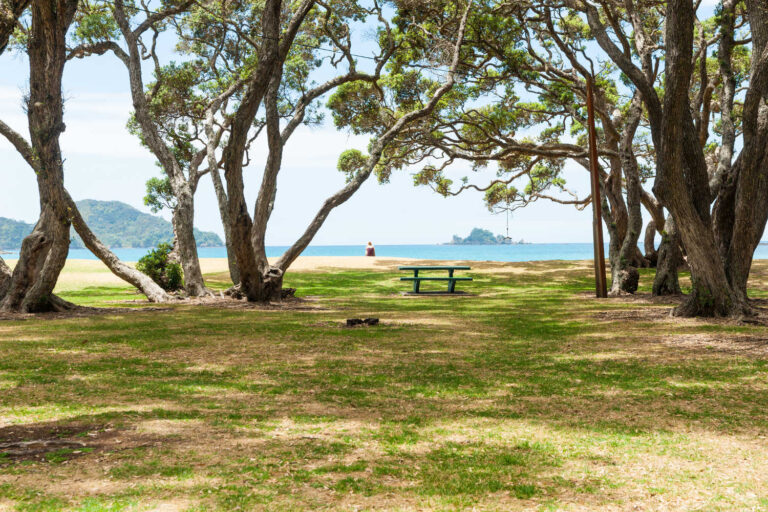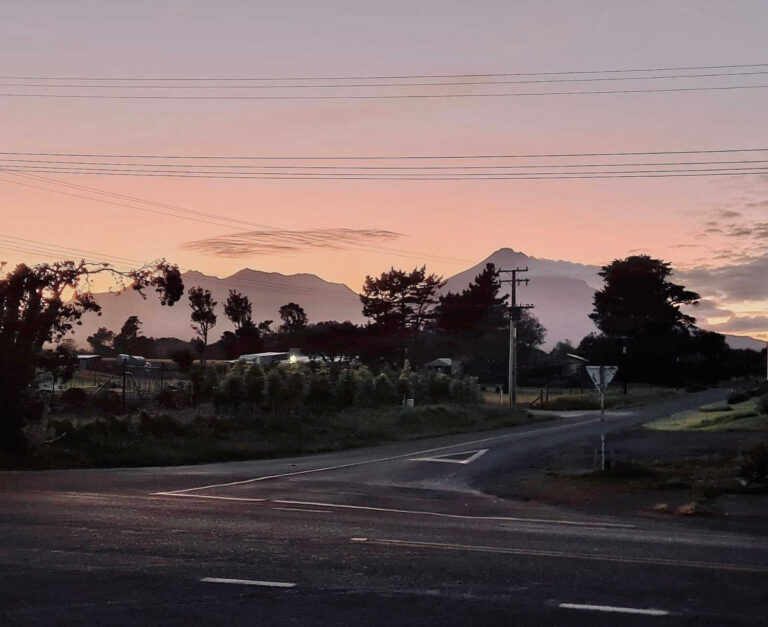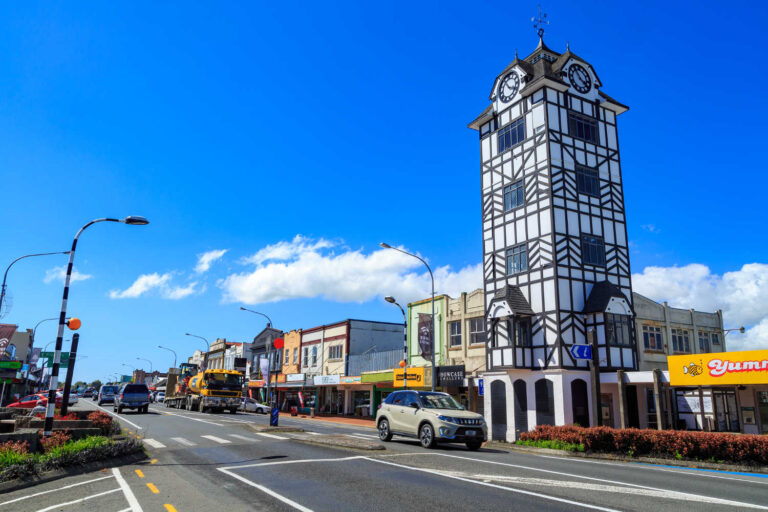The story of human occupation, small town new zealand and a warm welcome is a great reason to stop and explore the district
Patea there are plenty of things to do. A classic song sums up the place. A strong community spirit has seen the town flourish despite major economic blows such as the closing of a major employee, the local freezing works. A notable museum is a definite stop for heritage buffs with an interesting river walk and quirky places to investigate.
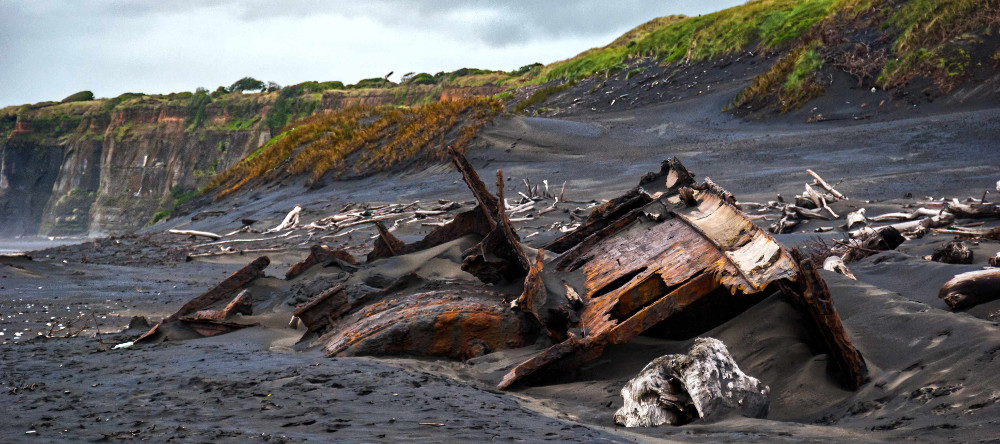
- Whanganui approximately 61 km
- South Taranaki’s second largest settlement
WHAT TO SEE HIGHLIGHTS
- Abandoned industrial buildings (former cool stores) from days when Patea was the largest exporter of cheese in New Zealand
- Aotea Utanganui South Taranaki Museum is a contemporary interactive space
- A town with a big heart and lots of stories
- Patea Heritage River walk exploring the past
- Lake Rotorangi nature walks along original hydroelectric courses and through native bush
- Shipwreck on the beach at low tide, SS Waitangi
WHERE TO TAKE THE BEST SELFIE
- Wharf remnants at low tide, atmospheric and moody photo moment
- Iconic replica waka hoisted onto its concrete plinth, Aotea Memorial Waka
- South Taranaki Museum whare (house) front entrance design entrance
- Patea Maori club entrance with its vibrant signage
- Town motto ‘Home of Poi E’
- Whale rib sculpture Garden of Tutunui
- Moody atmospheric cliff lookout point
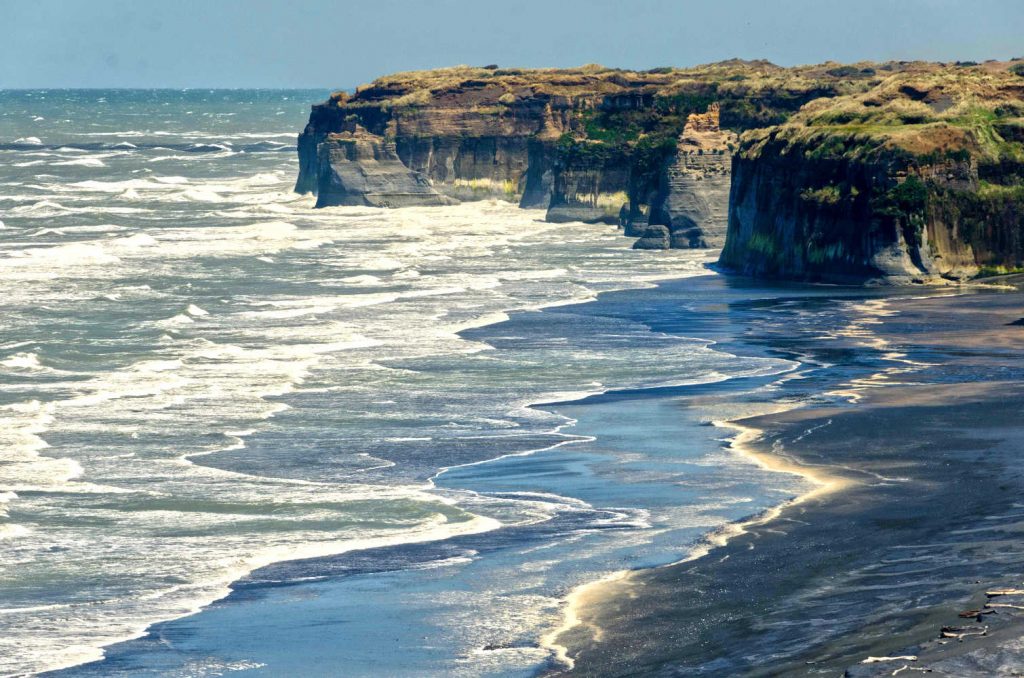
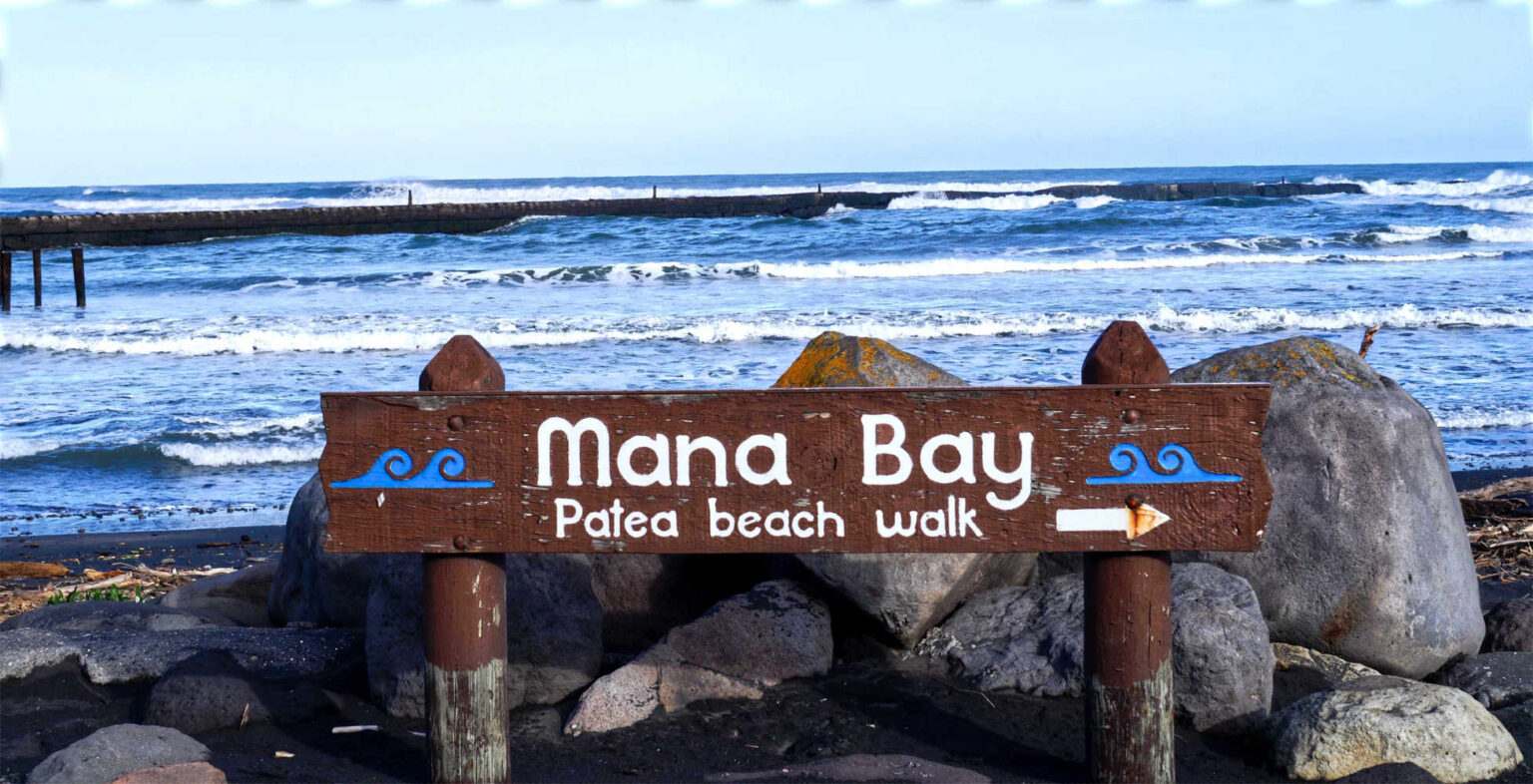
KIDS
- Aotea Utanganui South Taranaki Museum has interactive displays to stimulate a younger audience
- Patea Heritage River walk, there is a variety of landscapes and information plaques fostering an interest in the walk
- Memorial Reserve Park with its enormous fields is where the waka (canoe) and memorials are located. Check out the beautifully painted toilets.
FAME
- A song, Pātea Māori Club’s 1984 hit song ‘Poi e’ drew nationwide attention to the town.
- Dalvanius Prime, well known entertainer (died 2002) collaborated with Ngoingoi Pēwhairangi to write Poi E and recorded it with the Patea Māori Club in 1984.
- Golfer (born Whenuakura). Michael Campbell learned to play golf at the Patea Golf Club which sits on the cliffs overlooking the Tasman Sea. He crowned his professional career by winning the US Open in June 2005, and three months later, the HSBC World Match Play Championship which carries the richest prize in golf, £1,000,000.
- Tearepa Kahi’s 2016 movie Poi E: The story of our song renewed interest in the number one hit and introduced it to a new generation.
NOTORIETY
- Closure of the freezing works
WHAT MAKES THE PLACE WORK?
- A developing cultural tourism attraction from museum to nearby walks. The town continues to struggle to maintain its population however the community spirit is strong. Agribusiness is the mainstay for many locals
SOCIAL MEDIA
- Taranaki, New Zealand visitor information
- Facebook page Patea Historical Society
TOWN MOTTO
- Home of Poi E.
WEATHER
BEST TIME TO GO
- Year round
POPULATION
- 1,190 (2018)
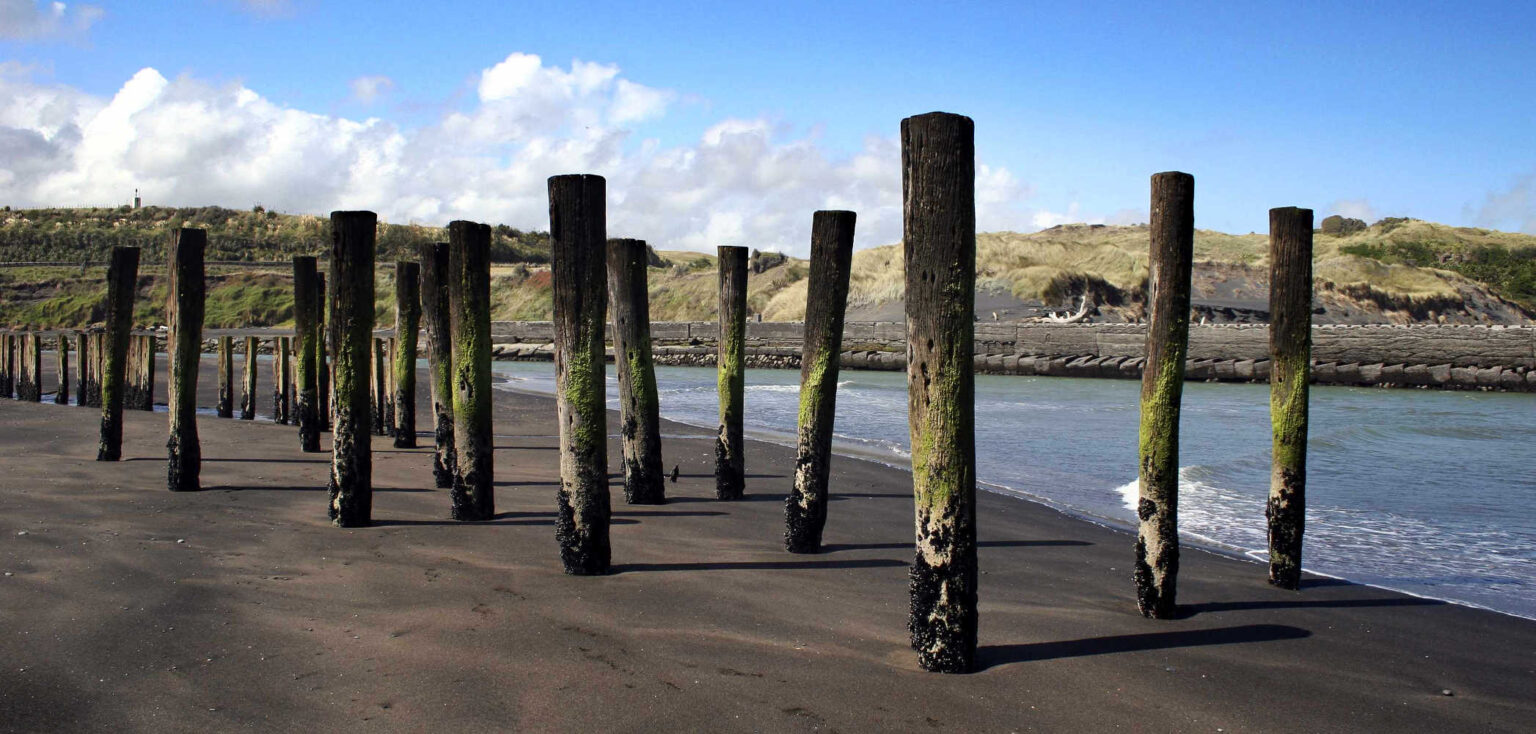
WHO TURNED UP AND SETTLED IN THE PLACE
- The New Zealand Land Wars led to the creation of a military outpost in 1865 named Carlyle. In 1881 the name was changed to Patea. The town was one of the largest settlements in Taranaki with the river port busy exporting cheese,wool,meat and flax.
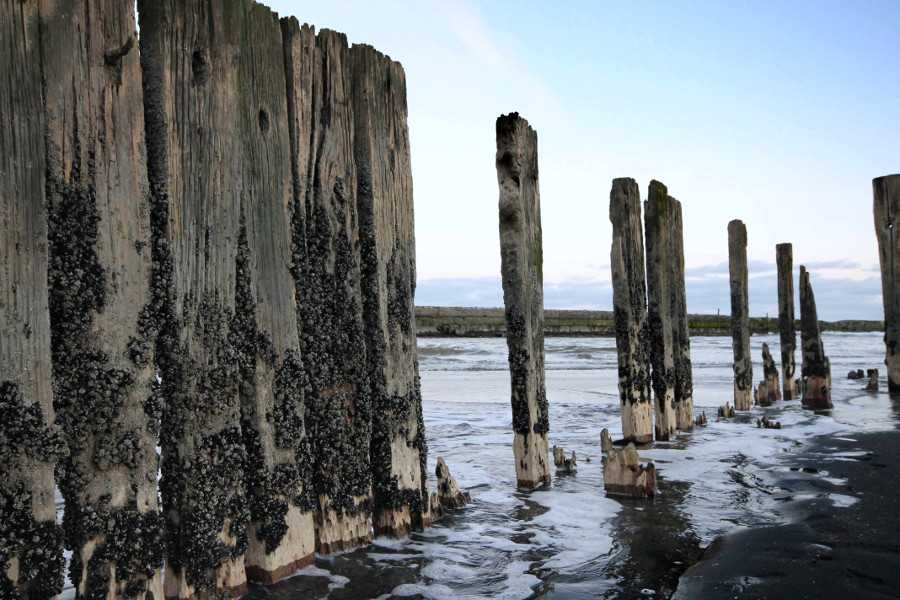
BE CAREFUL
- Wild west ocean currents when surfing. The beach is unpatrolled.
JUDGMENT
- Silver Fern and Fonterra keep a lot of locals busy — farm-related work is the town’s economic backbone. A town where the closure of the freezing works industry, (1982) combined with decline of the river port has had an impact on the quality of life. Yet the strong community spirit, the treasure trove of stories in the South Taranaki Museum and a ramble around the small town gives a deeper understanding of rural life in New Zealand. Allow up to one day.
Every town adds to the richness of things to do and see. For more details about the region check New Plymouth & Taranaki Region nearby attractions and events.
Getting there
TRAVEL PACK INFORMATION
- “The town is named after the river. Turi, the captain of the Aotea canoe, reached the parara ki te uru (river facing the west). As he and his followers threw down their burdens (pātea) he named the place, in full, Pāteanui-a-Turi; pātea: burden or pack; nui: great; a: of; Turi.” from NZ History
- Hunter Shaw was a Whenuakura farmer who died in 1927 and donated funds for various charitable institutions including the building of a town library, known as Hunter Shaw building
Unique journeys, personal adventures.


